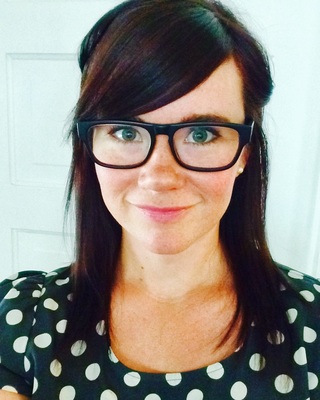Kelley Quirk is an assistant professor in the Department of Human Development and Family Studies. She earned her bachelor’s and master’s degrees from Central Michigan University, received her Ph.D. in counseling psychology from the University of Louisville, and completed a post-doc at Northwestern University. Learn more about what brought her to CSU and how she got into counseling psychology below.

1. What brought you to the Department of Human Development and Family Studies at CSU?
My line of education has been non-linear, moving from a master’s in professional counseling to a Ph.D. in counseling psychology to a postdoc research position in a clinical psychology program. Throughout these educational pursuits, two priorities have always remained – a love for research and science and a passion for working with couples and families. The Marriage and Family Therapy Program in the Department of Human Development and Family Studies is a rare place where both rigorous scientific pursuits and advancement of couple and family treatment co-exist. I feel extremely lucky to be embedded in such a rich, collaborative, multidisciplinary environment.
2. What are your research interests, and how did you get into that topic?
My research centers on two kinds of relationships – the relationship between romantic partners and the relationship between clients and therapist. My interest in couple therapy was grown out of my very first clinical experience. I was randomly assigned a complex case of two partners seeking counseling for issues related to communication, commitment, and sexual satisfaction. This experience peaked my interest in understanding not only the dynamics at play in the couple functioning, but also about the mechanisms at work in the therapy room and what factors may promote or inhibit psychotherapy success.
3. What’s your teaching philosophy?
In classes spanning therapy theories, career development, personality assessment, and clinical supervision, my teaching philosophy is grounded in social justice perspectives and student-centered developmental scaffolding. What does this mean? In each class, I seek to infuse concepts of power, privilege, identity intersectionality, and social constructivism. Whether students are learning about statistical methods or how to sit in a room with a client for the first time, I encourage students to be mindful of what parts of themselves they are bringing to the table. These efforts are couched within a developmental perspective, an awareness of where each student may be starting and what they may need to move forward.
4. What’s your favorite thing about campus?
I am continually in awe of the community of students at CSU and the climate of the University. Students seem to not only care about their education and take it very seriously, but there is also a feeling of sociocultural awareness and activism on campus. Perhaps this is influenced by the climate that the University has strived to create – a community of inclusiveness, openness to dialogue, and resources backing these lofty ideals. There is, of course, much more for us to do. But, in my short time here, I have been impressed by the number of moments that I have felt pride for our University and the voice it has in our world today.
The Department of Human Development and Family Studies is part of the College of Health and Human Sciences.